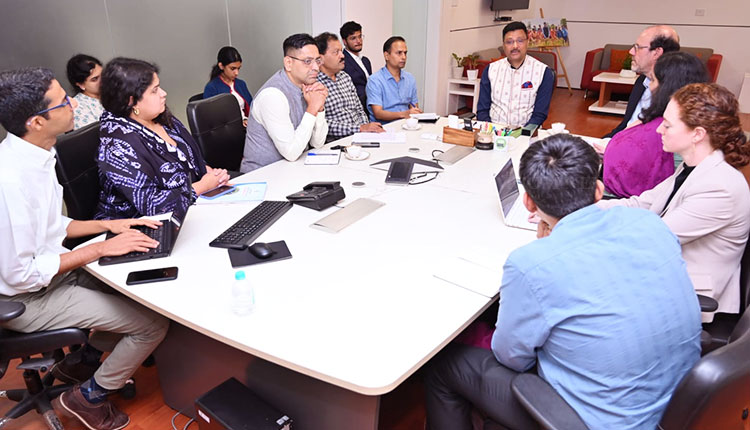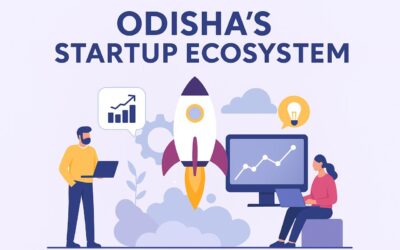Nobel Laureate Michael Kremer Discusses AI-Based Weather Forecasting with Odisha Agriculture Department

University of Chicago team explores integration of advanced forecasting tools with Krushi Samrudhi Helpline to support climate-resilient farming.
Bhubaneswar : Nobel Laureate Professor Michael Kremer, along with a 12-member team from the University of Chicago, visited Krushi Bhavan in Bhubaneswar to review progress on their ongoing research project focused on weather forecast dissemination and its effectiveness among Odisha’s farming communities.
A meeting was organised at the Krushi Bhavan conference hall under the chairmanship of Dr. Arabinda Kumar Padhee, Principal Secretary, Agriculture and Farmers’ Empowerment Department (DA\&FE). The session aimed to evaluate the relevance, validity, and acceptance of weather information systems currently available to farmers and to explore innovations that could enhance their reliability.
During the discussions, Prof. Kremer praised the Krushi Samrudhi Helpline (KSH), describing it as a vital service that reaches the last mile and equips farmers to manage climate-related challenges more effectively. He highlighted that timely dissemination of weather advisories has already saved many farmers from potential crop losses.
Prof. Kremer further suggested that Artificial Intelligence (AI)-based forecasting models should be introduced into Odisha’s agricultural system. By incorporating variables such as rainfall, temperature, and humidity, these models could help predict pest outbreaks with greater accuracy. Such forecasting, he explained, would empower farmers to adopt precautionary and preventive measures, reducing crop damage from sudden weather variations. He stressed the importance of integrating multiple weather models with the existing KSH system, noting that this would strengthen Odisha’s capacity to deliver timely and actionable advisories to farmers across diverse agro-climatic zones.
Responding to Prof. Kremer’s observations, Dr. Padhee outlined several holistic initiatives being undertaken by the Department of Agriculture and Farmers’ Empowerment to build resilience in the sector. These include Comprehensive Rice Fallow Management to enhance soil biomass, expansion of crop insurance and customised agro-advisories, use of digital crop surveys and the Krushak Odisha database for better planning, promotion of stress-tolerant crop varieties, deployment of digital pest monitoring systems, and a detailed contingency plan prepared in collaboration with Odisha University of Agriculture and Technology (OUAT) to mitigate adverse weather effects. Dr. Padhee noted that these measures are designed to ensure that Odisha’s farming community remains both climate-smart and market-ready.
Prof. Kremer commended Odisha’s comprehensive approach to agricultural transformation and expressed optimism about a long-term collaboration with the State. He emphasised the scope for mutual exchange of research, knowledge, and expertise to develop scalable models that could serve as benchmarks for other regions facing similar climate challenges. He remarked that the integration of advanced forecasting with farmer-focused systems like KSH could place Odisha at the forefront of climate-resilient agriculture in India.
The meeting was attended by Shubham Saxena, Director of Agriculture and Food Production; Subrat Kumar Panda, Director of Soil Conservation and Watershed Development; the Additional Secretary of DA\&FE; senior departmental officers; scientists from OUAT; and members of the Climate Resilience Cell (CRC). Their presence reflected the government’s commitment to ensuring a multi-stakeholder approach in developing sustainable, technology-driven solutions for the farming sector.
The visit of Prof. Kremer and his University of Chicago team underscores the growing importance of evidence-based interventions in agriculture. By blending international expertise with state-level innovations, Odisha is positioning itself as a leader in harnessing digital tools and climate intelligence to secure the livelihoods of farmers. With the proposed integration of AI-based forecasting into the Krushi Samrudhi Helpline, the State is taking another decisive step toward achieving its vision of a resilient, farmer-centric agricultural ecosystem.








